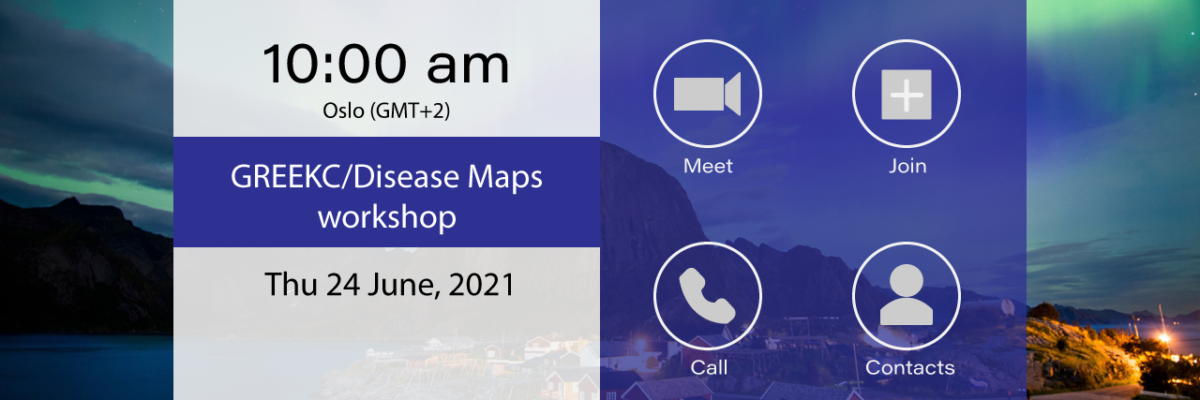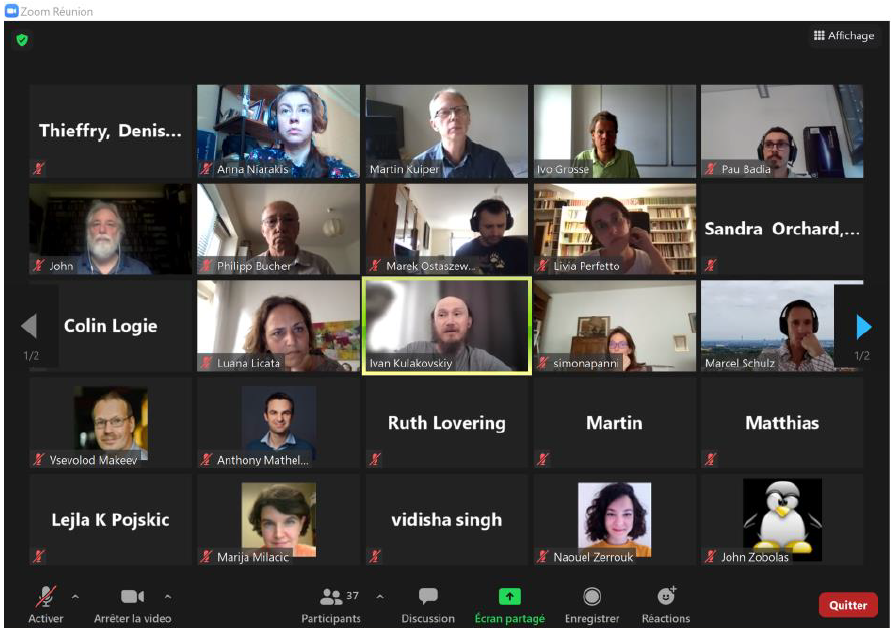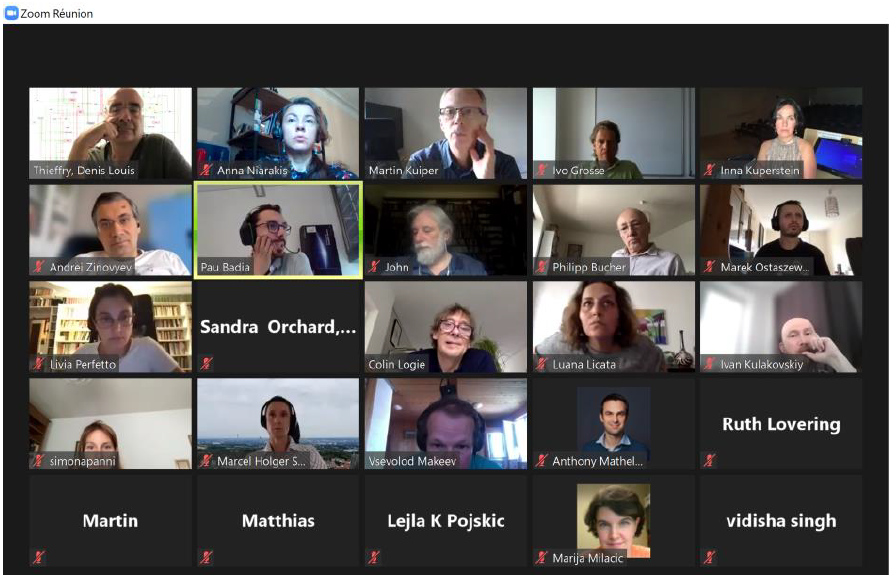
GREEKC/Disease Maps workshop
When
-
Short description:
This event is organized by invitation only. If you want to participate, please contact Martin Kuiper (martin.kuiper@ntnu.no)
Local organiser(s):
- Martin Kuiper
Agenda:
| GREEKC / Disease Maps Workshop Agenda | ||
|---|---|---|
| 10:00 - 16:30 ____________ | access by ZOOM | |
| 10:00 - 11:30 | Session 1: Short Seminars - Major achievements of GREEKC | |
| Primer: A small selection of the achievements of the GREEKC work will be presented in short talks (8 minutes, 8 to 10 slides maximum), leaving 7 minutes for discussions. The talks will provide insight into the way of working in the GREEKC consortium, and how discussions and action points generated in the many Workshops organised over the lifespan of GREEKC could be picked up in ongoing projects or through ad-hoc dedicated activity bursts to solve specific problems or test certain hypotheses. The presentations and discussions should prime the thinking about follow-up COST efforts with the Disease Maps consortium or otherwise. | ||
| Link to new COST Action Sandbox document | ||
| 10:00 - 10:10 | General introduction: Aims of the Workshop | Martin Kuiper |
| Aims of GREEKC and way-of-working | ||
| 10:10 - 10:25 | Implications of annotation needs for ontology engineering | Pascale Gaudet |
| Colin Logie | ||
| 10:25 - 10:40 | Curation guidelines and implementation | Sandra Orchard |
| 10:40 - 10:55 | GO-CAM template-based TF-TG annotations | Jesualdo Tomás Fernández Breis |
| 10:55 - 11:10 | Data sharing, standards | Noemi del Toro |
| 11:10 - 11:25 | GREEKC / GRECO-BIT | Philipp Bucher |
| 11:30 - 12:00 | Coffee/Lunch break | |
| 12:00 - 13:30 | Session 2: Disease Maps COST Action - What can the GRECO consortium contribute? | |
| Primer: The Disease Maps consortium will provide insight into their activities, research interests and application domain. In 3 talks they will illustrate goals and achievements, the need for standards and ontologies and the need for interoperability so that the developed resources can be used for maximum benefit. Lessons learned from the ongoing efforts on various disease maps, e.g. the current COVID-19 work, will be inspirational for future efforts. The details about the aims, bottlenecks, blue sky scenarios etc. should prime the audience to provide pertinent feedback and advice for the COST proposal writing. The next collection date for COST is 29 October 2021. | ||
| 12:00 - 12:15 | Introduction to Disease Maps: successes and challenges | Anna Niarakis |
| 12:15 - 12:30 | Discussion | |
| 12:30 - 12:45 | Disease Maps standardization efforts: curation guidelines and ontologies | Alexander Mazein |
| 12:45 - 13:00 | Discussion | |
| 13:00 - 13:15 | Interoperability between Disease Maps and other resources in systems-level analysis | Marek Ostaszewski |
| 13:15 - 13:30 | Discussion | |
| 13:30 - 14:30 | Lunch/Coffee break | |
| 14:30 - 16:30 | Session 3: Gene regulatory networks in the context of disease maps. Curated and high-throughput data applicable for GRN reconstruction. | |
| Primer: The focus of this session is to bring together DM people and those who are involved in mechanistic reconstruction of GRNs from high-throughput data. We will start a joint dialog to bridge the gap between the demands of the DM community (which finally depend on current trends in systems medicine) and computational modeling community (CoLoMoTo and others), and current and ongoing achievements of the community studying TFBS and TF-TGs. Technically, the concept is to have 5-8 slides ?-talks highlighting a few state of the art resources or tools on a particular TFBS or TF-TG-related subject, and then discuss how it looks from the DM perspective and see if there are possibilities to improve understanding and usability in the DM context. For presenters from the DM side, it would be great to have a similar introduction, how GRNs are validated and utilized in the context of disease maps.? | ||
| 14:30 - 14:40 | Gene regulatory network as a component of a disease map | Inna Kuperstein |
| Andrei Zinovyev | ||
| 14:40 - 14:50 | Estimation of TF activity from transcriptomics with DoRothEA and DecoupleR | Pau Badia |
| 14:50 - 15:00 | Discussion 'Use Cases' | |
| 15:00 - 15:10 | Individual threads of a GRN web: key human TF-TG resources and curated TF-TG annotations (ExTRI, IMEx and SIGNOR) | Luana Licata |
| Martin Kuiper | ||
| 15:10 - 15:20 | Identifying TF-TG links through enhancers using epigenetics data | Marcel Schulz |
| 15:20 - 15:30 | Discussion 'TF-TG links' | |
| 15:30 - 15:45 | Coffee break | |
| 15:45 - 15:55 | High-throughput data and TFBS predictions to support TF-TG links: key resources and data diversity | Rafael Riudavets |
| 15:55 - 16:05 | Beyond TFBS: individual variants in regulatory sequences as verification for TF-TG links | Vsevolod Makeev |
| 16:05 - 16:30 | Panel discussion | |
Workshop Report:
Group picture in the online meeting

